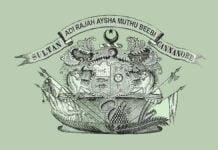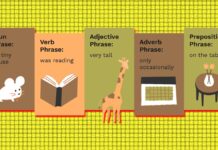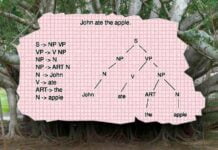Publication ethics refers to the set of moral principles and guidelines that govern the conduct of individuals involved in publishing academic and scientific research. They are designed to ensure world-class research publications, public trust in research, and proper credit for authors’ original ideas and work. It refers to the best practice in the ethics of scholarly publishing. It encompasses various aspects, including authorship, plagiarism, data manipulation, conflicts of interest, and the overall integrity and transparency of the research publication process. It involves several players, including the authors, journal editors, peer reviewers, and the publisher. Key aspects of publication ethics include truthfulness and honesty, respect for intellectual property and confidentiality, and accountability and transparency. Adhering to publication ethics ensures the reliability, credibility, and fairness of academic publications.
Fabrication and falsification of data represent serious ethical violations, as does plagiarism. Another area involves publishing the same data or research findings in more than one journal, known as redundant or duplicate publication. Journal editors, peer reviewers, and publishers have specific responsibilities. Editors are expected to maintain the integrity of the academic record and should have a system for addressing ethical issues. Peer reviewers must provide unbiased and relevant critiques to improve the quality of the submitted work. Clear guidelines and protocols should be in place for reporting and dealing with ethical issues. This promotes academic integrity, accuracy, and reliability in scholarly publishing.
Types of Publication Ethics
- Data integrity and plagiarism: Researchers must ensure that the data they collect is accurate and complete. They must also cite the work of others correctly and avoid plagiarism.
- Simultaneous submission and duplicate publication: Researchers must not submit the same manuscript to multiple journals simultaneously. They must also not publish the same research in various journals.
- Self-citation: Researchers should avoid excessive citation of their own work.
- Ethics of authorship: Researchers should be listed as authors only if they have made a significant contribution to the research.
- Conflicts of interest: Researchers must disclose any conflicts of interest that could bias their research.
Importance of Publication Ethics
Publication ethics promotes a culture of trust and accountability among researchers, ensuring that the information presented in academic publications is accurate and reliable. By adhering to ethical principles, researchers demonstrate their commitment to upholding the integrity of their work and advancing knowledge. Publication ethics help to ensure the quality and integrity of research. When researchers follow ethical guidelines, they are less likely to fabricate or falsify data, plagiarise the work of others, or engage in other forms of misconduct. This helps to ensure that the results of scientific and academic research are reliable and trustworthy.
Ethics help to protect the rights of research participants. When researchers obtain informed consent from participants, they respect participants’ autonomy and ensure the research does not harm them. Publication ethics also require researchers to keep participant data confidential, thereby protecting their privacy. Publication ethics help to promote fairness in the research community. When researchers follow ethical guidelines, they are competing on a level playing field. This helps to ensure that the best research is published, regardless of the researcher’s race, gender, or other personal characteristics. Publication ethics also helps protect the reputation of individuals and institutions involved in the research process, fostering a healthy academic environment built on mutual respect and fairness.
Basic Ethical Considerations
Authors should follow basic ethical principles, including providing accurate authorship information, acknowledging contributors, and being transparent about funding sources and potential conflicts of interest. Authors should only list themselves as authors if they have made a significant contribution to the research. This includes contributing to the conception and design of the study, the acquisition of data, the analysis and interpretation of data, and the writing of the manuscript. People should not list themselves as authors simply because they have provided funding or technical support.
Authors should acknowledge all individuals who have made significant contributions to the research, even if they are not listed as authors. This can include individuals who provided data, technical support, or editorial assistance. They should disclose all funding sources for their research, as well as any potential conflicts of interest. This includes financial conflicts of interest, as well as any other conflicts of interest that could bias the research findings. If any biases or conflicts of interest could impact your objective assessment of the work, it’s necessary to disclose them. Transparency in academic work is as important as the work itself. It builds trust with your readers, encourages a spirit of open inquiry and promotes rigorous scholarship.
Plagiarism
Plagiarism, commonly defined as the act of using someone else’s work or ideas without proper attribution, is a serious breach of publication ethics. It can take various forms, including verbatim copying, paraphrasing without citation, and even self-plagiarism. Such unethical practices not only undermine the originality and integrity of academic publications but also violate the rights of the original authors. Therefore, it is crucial for researchers and institutions to actively combat plagiarism to maintain the accuracy and reliability of information in academic publications.
- Direct plagiarism: This is the most obvious form of plagiarism. It involves copying words or ideas from another source without giving credit to the source.
- Paraphrase plagiarism: This is a more subtle form of plagiarism. It involves paraphrasing someone else’s work without citing the source. This can be difficult to detect, but it is still plagiarism.
- Self-plagiarism: This is when an author uses their own previously published work without citing it. This is considered plagiarism because it fails to credit the source.
- Cheating: This is when an author uses unauthorised materials or assistance to complete their work. This can include using someone else’s work, copying from a classmate, or using online resources that provide answers to questions.
Plagiarism of any sort is unacceptable. Consequences of plagiarism for both authors and the academic community include damage to reputations and a loss of credibility. For authors, plagiarism can result in their work being rejected, their careers being damaged, and their future opportunities being limited. For the academic community, plagiarism undermines trust and can degrade the overall quality of research. In addition, plagiarism can also have legal ramifications, with authors potentially facing lawsuits for copyright infringement. Therefore, individuals and institutions need to take plagiarism seriously and implement strict measures to prevent and detect it.
Authors need to ensure their work is entirely original and, if they use other sources, cite them appropriately. Authors need to understand what plagiarism is and how to avoid it. When referencing other sources, it’s essential to follow a consistent citation style throughout your paper. This not only helps prevent plagiarism but also makes your work easier for readers to understand. Always provide full bibliographic details when citing sources, and include page numbers where necessary, especially when quoting directly.
When dealing with visual texts, you should strive to describe the visual elements as accurately as possible to avoid misrepresenting the original work. Any interpretation of a visual text should be clearly distinguished as your analysis, not that of the artwork itself. Showing respect for your subject matter is integral. The ethical considerations of authorship go far beyond plagiarism and accurate citation.
Additionally, educational institutions can play a crucial role in promoting academic integrity by educating students about the consequences of plagiarism and providing resources to help them learn how to cite sources correctly. By taking proactive steps to prevent plagiarism, the academic community can ensure the credibility and integrity of their work, fostering a culture of honesty and accountability.
Data Manipulation and Fabrication
Data manipulation or falsification refers to the intentional alteration of research data or results to support a desired outcome or hypothesis. This can involve selectively omitting data points, changing data values, or misrepresenting data in graphs or figures. On the other hand, data fabrication refers to the creation of data that was never collected or recorded. Examples of data manipulation include reanalysing data until a significant result is obtained or excluding outliers without a valid justification. Examples of data fabrication include creating fictional participants or results to fit a desired conclusion. Falsification and fabrication of data are indeed serious breaches of ethical conduct in any academic or scientific context.
The negative impact of falsification and fabrication on research integrity is significant. These practices not only compromise the accuracy and validity of research findings but also erode trust in the researcher community. When data is manipulated or fabricated, it becomes impossible to replicate the study or build on its findings, hindering progress and advancement across various fields. Furthermore, it can lead to wasted resources and misguided policies or interventions based on faulty information. Ultimately, maintaining the highest standards of scientific integrity is crucial for the credibility and reliability of research. Ethical guidelines for handling and reporting research data are designed to ensure the accuracy and transparency of scientific findings. These guidelines include proper data collection, storage, and analysis methods, as well as the obligation to report any potential conflicts of interest. By adhering to these guidelines, researchers can maintain the trust of their peers and the general public, fostering collaboration and knowledge sharing. In addition, funding agencies and academic institutions play a vital role in promoting scientific integrity by establishing policies and providing resources to support ethical research practices.
Any manipulation of research data and images, selecting data that favours one’s hypothesis, and neglecting other data is considered unethical. Providing a falsified representation would do a disservice to the very injustices you’re trying to highlight. Instead, the analysis should be grounded in carefully examined evidence from the text.
Authorship and Acknowledgements
Properly attributing authorship and acknowledging contributions are essential aspects of academic integrity. It not only gives credit to the original authors and contributors but also demonstrates respect for their intellectual property. By emphasising the importance of these practices, educational institutions can instil in students a sense of ethical responsibility and encourage them to uphold the principles of academic honesty. Acknowledging the contributions of others also fosters collaboration and the exchange of ideas within the academic community, leading to further advancements in knowledge and research.
Ethical considerations in determining authorship and the order of authors are also crucial for maintaining the integrity of academic work. Properly attributing credit to individuals who have contributed to a research project or paper is not only fair, but it also ensures that the work is accurately represented. This practice promotes transparency and trust within the academic community, allowing for a more accurate evaluation of an individual’s contributions and expertise. Ultimately, upholding ethical considerations in authorship and the author order promotes a culture of fairness and accountability in academia.
Guidelines for acknowledging individuals and organisations that have contributed to the research should also be followed, as this gives credit where it is due and prevents any potential conflicts of interest. Additionally, properly acknowledging contributions helps to build collaborations and foster a sense of community within the academic field. By adhering to these guidelines, researchers can demonstrate their integrity and commitment to upholding ethical standards in their work. This not only benefits individual researchers but also the scientific community as a whole, ensuring that research is conducted responsibly and honestly.
Conflicts of Interest
Conflicts of interest in research publications occur when a researcher’s personal or financial interests compromise the objectivity and credibility of their findings. These conflicts can arise when researchers have financial ties to companies or organisations that may benefit from the outcome of their research. Authors must disclose any potential conflicts of interest in their publications to ensure transparency and maintain the trust of the scientific community and the general public.
Types of conflicts of interest, including financial and personal relationships between researchers and the subjects of their studies, can cast doubt on the integrity of the research. Financial conflicts of interest can arise when researchers receive funding or sponsorship from corporations or industries with a vested interest in the results. Personal relationships, such as familial or professional connections, can also bias a study’s findings. Therefore, researchers need to acknowledge and address these conflicts to uphold scientific integrity and maintain public trust.
Ethical considerations and disclosure requirements for managing conflicts of interest are necessary to ensure transparency and prevent any potential bias from affecting the research process. Researchers should disclose any financial or personal relationships that could influence their work to relevant institutions or journals. Additionally, institutions should establish clear guidelines and policies for managing conflicts of interest, including procedures for reviewing and monitoring research projects to ensure ethical standards are maintained. By actively addressing conflicts of interest, researchers can uphold the integrity of their work and promote trust in the research community.
Redundant Publication
Redundant or duplicate publication is an ethical violation in the academic world. This behaviour involves an author publishing the same data or findings as they appear in an already published paper as if it were new research. Doing so can distort the academic record, as ‘duplicate’ findings may be misinterpreted as independent verification of results. This reflects poorly on the author’s academic integrity and may lead to the retraction of the repeated work. The redundant publication can be harmful to the research community in many ways:
- It can waste reviewers’ and editors’ time and resources.
- It can mislead readers about the state of the research.
- It can give the impression that there is more research on a topic than there is.
- It can provide an unfair advantage to the authors who publish redundantly.
Peer Review
Peer review is a critical process for ensuring the quality and credibility of any research. It involves having experts in the same field evaluate and provide feedback on a researcher’s work before publication. Peer reviewers play a crucial role in identifying any flaws or biases in the study design, methodology, or interpretation of results. They also contribute to improving the overall clarity and rigour of the research. By upholding rigorous peer-review standards, the research community can maintain the highest level of academic and scientific integrity and ensure that only high-quality research is disseminated to the public.
Guidelines and Policies
Having clear, explicit guidelines and policies is crucial for addressing ethical transgressions in academia, including, but not limited to, data falsification, fabrication, and redundant publication. These guidelines should provide a well-defined protocol for reporting suspected violations and the steps that follow, including an investigation and subsequent action if a violation is confirmed. This promotes transparency and ensures that all measures are taken to maintain the integrity of research. Furthermore, institutions need to provide ongoing education on these ethical guidelines so everyone involved in research understands the implications of potential breaches.
- Having clear guidelines and policies is essential for many reasons:
- It helps ensure that ethical issues are addressed promptly and fairly.
- It provides individuals with a way to report ethical concerns without fear of retaliation.
- It helps to protect the integrity of the research community.
- It helps to build public trust in science.
Many organisations have developed guidelines and policies for reporting and addressing ethical issues, such as the Committee on Publication Ethics (COPE) and the International Committee of Medical Journal Editors (ICMJE). These guidelines and policies are essential for everyone involved in research, including researchers, editors, publishers, and funding agencies. Following these guidelines and policies could help to ensure that research is conducted ethically and responsibly. In addition to the guidelines and policies developed by these organisations, individual institutions and organisations also have specific guidelines and policies for reporting and dealing with ethical issues. It is important to be familiar with the guidelines and policies that apply to a particular situation. If one has concerns about an ethical issue, it is important to report it to the appropriate authorities. It is important to speak up if one sees something wrong. Reporting ethical concerns can help to make research more ethical and responsible.
How to Follow Publication Ethics
There are several steps researchers can take to follow publication ethics. Some of the most important include:
- Be familiar with the ethical guidelines of the journal you are submitting to. Each journal has its own set of ethical guidelines, so it is important to be familiar with them before you submit your manuscript.
- Obtain informed consent from research participants. This is especially important if your research involves human participants.
- Keep participant data confidential. This means not sharing participant data with anyone who does not need to see it.
- Cite the work of others correctly. This includes using quotation marks when you use someone else’s words and providing a citation for the source.
- Avoid plagiarism. It is a serious ethical violation.
- Do not submit the same manuscript to multiple journals at the same time. This is called simultaneous submission, and it is unethical.
- Do not publish the same research in multiple journals. This is called duplicate publication, and it is also unethical.
- Do not cite your work excessively. Self-citation can be used to inflate the importance of your work, and it is unethical.
- Disclose any conflicts of interest that could bias your research. This includes financial conflicts of interest and personal relationships with other researchers.
Publication ethics are important for ensuring the quality, integrity, and fairness of academic and scientific research. By following ethical guidelines, researchers can help build trust within the research community and advance knowledge.





























